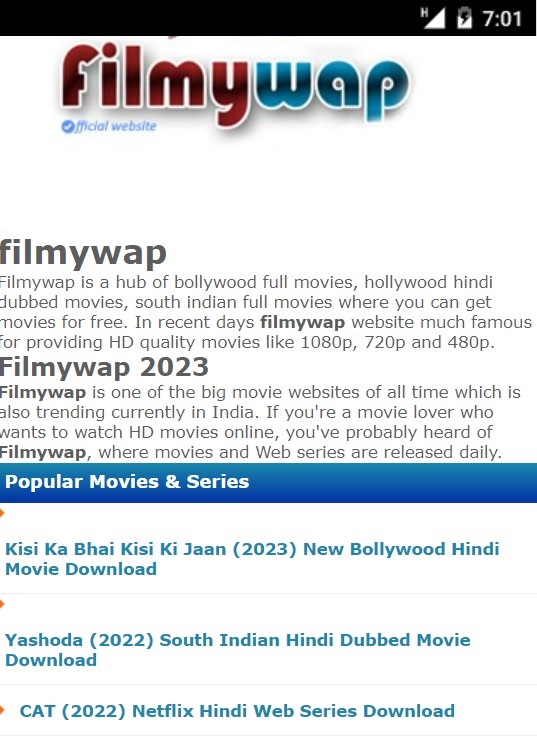Is Filmywap truly the gateway to endless entertainment, or is it a doorway to legal complications? Despite its allure of offering movies in multiple languages and genres without cost, the platform raises significant concerns about copyright infringement. Filmywap remains one of the most notorious names in the world of pirated content, yet millions continue to use it. This begs the question: why do users opt for such platforms when legitimate streaming services abound?
The rise of piracy websites like Filmywap has been both rapid and controversial. Established as a public torrent site, Filmywap offers pirated versions of Hindi, English, and Punjabi films. The website gained immense popularity due to its extensive library of Bollywood blockbusters, Hollywood hits, and regional cinema. However, this convenience comes at a price—legal repercussions. While downloading from Filmywap might seem harmless to some, it directly affects the livelihoods of filmmakers, actors, producers, and countless others involved in the film industry. Furthermore, the quality of content available on these sites often leaves much to be desired, with subpar video resolution and audio issues being common complaints among users.
| Category | Details |
|---|---|
| Name of Website | Filmywap |
| Type | Piracy Website |
| Content Offered | Hindi, English, Punjabi Movies; Bollywood, Hollywood, South Indian Films |
| Official Status | Illegal (Pirated Content) |
| Founded | Early 2010s |
| Notable Features | Torrent Downloads, Streamable Links |
| Legal Risks | Copyright Infringement Lawsuits, Device Security Threats |
| Reference Link | Trusted APK Hosting Site |
Beyond the ethical implications, using Filmywap also poses technical risks. Users who download content from such platforms frequently encounter malware and viruses embedded within files. These malicious programs can compromise personal data, steal sensitive information, or even render devices unusable. Additionally, enabling Install from Unknown Sources on Android devices—a prerequisite for installing apps downloaded from Filmywap—opens up further vulnerabilities that hackers could exploit. As cybersecurity threats grow increasingly sophisticated, relying on unverified sources becomes more perilous than ever before.
In contrast, legitimate streaming platforms like Netflix provide high-quality content accompanied by robust security measures. For instance, the movie Raees, starring Shah Rukh Khan, Mahira Khan, and Nawazuddin Siddiqui, showcases the story of a street-smart individual rising to become Gujarat's bootlegging king in the 1980s. Available legally on Netflix, this film exemplifies how authorized channels deliver superior viewing experiences while respecting intellectual property rights. Subtitles in various languages, including German, English, Spanish (Latin America), French, Italian, Korean, Chinese (Simplified), and Chinese (Traditional), enhance accessibility for global audiences.
Moreover, supporting original creators through paid subscriptions fosters innovation and creativity within the entertainment sector. By choosing legal alternatives, consumers contribute to an ecosystem where artists receive fair compensation for their work. Conversely, patronizing piracy websites undermines this system, discouraging future investments in cinematic projects. It is imperative for viewers to recognize the broader impact of their choices and advocate for ethical consumption practices.
While alternative platforms like Movie4U claim to offer similar content to Filmywap, they too operate outside the boundaries of legality. Such sites frequently change domain names to evade detection, creating confusion and frustration for users seeking consistent access. This cat-and-mouse game between authorities and pirates highlights the ongoing struggle to combat digital theft. Meanwhile, organizations like the Library of Congress strive to preserve artistic integrity by hosting events featuring renowned figures such as Zachary Levi and Zooey Deschanel. Their discussions around new films based on classic literature underscore the importance of honoring original works rather than exploiting them for illicit gains.
Ultimately, the decision lies with individual users. Will they prioritize short-term gratification over long-term consequences? Or will they embrace responsible habits that support the growth and sustainability of the entertainment industry? The choice may appear simple, but its ramifications extend far beyond personal enjoyment. As technology continues to evolve, so too must our understanding of what constitutes responsible digital citizenship.


